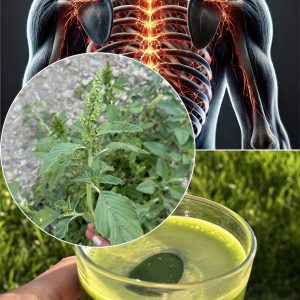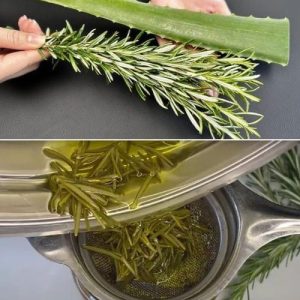Introduction: In the world of plants, some are quietly magnificent, hiding incredible benefits behind simple exteriors. One such plant is Euphorbia hirta, often unnoticed but potentially as valuable as a gold mine in terms of health benefits. Commonly known as asthma plant, it has been used in traditional medicine across various cultures. Let’s explore why just one leaf of this plant holds such esteemed value.
What is Euphorbia Hirta? Euphorbia hirta is a small, herbaceous plant with numerous branches, growing typically in tropical areas. Its leaves are finely haired and often detailed with a delicate pattern. While modest in appearance, the plant is a powerhouse of medicinal properties, traditionally used to treat a range of ailments from skin irritations to bronchial conditions.
Health Benefits: The leaves of Euphorbia hirta are known for their impressive medicinal uses:
Respiratory Relief: The plant is perhaps most celebrated for its effectiveness in treating respiratory issues. It acts as an expectorant, helping to alleviate coughs and symptoms of asthma.
Digestive Health: It has been used to soothe gastrointestinal problems, such as diarrhea and dysentery, thanks to its anti-inflammatory and antiparasitic properties.
Dermatological Uses: Applied topically, the sap from Euphorbia hirta leaves can help heal wounds and treat fungal infections.
Preparation and Usage:
Tea: One common way to utilize Euphorbia hirta is by brewing its leaves into a tea. Simply steep a couple of cleaned leaves in boiling water for a few minutes.
Topical Application: For external ailments, the crushed leaves or the extracted sap can be applied directly to the affected area.
Capsules: In some health stores, Euphorbia hirta is also available in capsule form for those who prefer a more straightforward consumption method.
Safety Note: While Euphorbia hirta is beneficial, it is important to use it cautiously. Always consult with a healthcare provider before starting any new treatment to ensure it is safe for you, particularly if you have existing health conditions or are taking other medications.
Conclusion: Euphorbia hirta may not be as flashy as gold, but its value in natural medicine is immense. Whether you’re looking to soothe a persistent cough or seeking a natural treatment for skin irritation, this plant could offer gentle, effective relief. Exploring the benefits of such traditional remedies not only connects us to nature but also to centuries of healing wisdom. So next time you come across this humble plant, remember that you might just have stumbled upon a hidden treasure in your garden.





